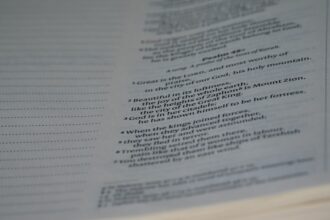When I think about the process of freezing bank accounts, I realize it’s a significant action that can have far-reaching implications for individuals and businesses alike. A bank account freeze is essentially a legal action that restricts access to funds within the account. This can be initiated by financial institutions, creditors, or even law enforcement agencies, depending on the circumstances.
The process typically involves notifying the account holder and may require a court order, especially in cases involving legal disputes or debts. Understanding this process is crucial for anyone who might find themselves in a situation where their account could be frozen. The mechanics of freezing an account can vary from one institution to another, but generally, it involves placing a hold on the account that prevents withdrawals, transfers, or any other transactions.
I’ve learned that this action is often taken as a precautionary measure to protect the interests of creditors or to comply with legal requirements. It’s important to note that while the account is frozen, the account holder may still be able to view their balance and transaction history, but they cannot access their funds until the freeze is lifted. This can lead to significant stress and financial strain, making it essential to understand the underlying reasons and processes involved.
Key Takeaways
- Freezing a bank account is a legal process that restricts access to the funds in the account.
- Bank accounts can be frozen for reasons such as suspected fraud, court orders, or unpaid debts.
- Before freezing a bank account, steps such as sending a notice to the account holder and attempting to resolve the issue should be taken.
- To initiate the freezing of a bank account, a legal authority or the bank itself must file a request with the appropriate documentation.
- After a bank account is frozen, the account holder will not be able to access the funds, make withdrawals, or use the account for transactions.
Reasons for Freezing a Bank Account
There are several reasons why a bank account might be frozen, and I find it fascinating how varied these reasons can be. One common reason is unpaid debts. Creditors may seek to freeze an account if they have obtained a judgment against the account holder for unpaid loans or credit card debts.
I’ve seen how this can happen in both personal and business contexts, where financial mismanagement leads to dire consequences. Another reason for freezing an account could be related to suspected fraudulent activity.
If a bank detects unusual transactions or activities that raise red flags, they may freeze the account as a precautionary measure. This is often done to protect the account holder from potential losses due to identity theft or fraud. In such cases, I understand that the bank will typically reach out to the account holder to verify transactions and ensure that no unauthorized access has occurred.
This protective measure, while inconvenient, is ultimately in the best interest of the customer.
Steps to Take Before Freezing a Bank Account

Before deciding to freeze a bank account, there are several steps I believe one should consider taking. First and foremost, it’s essential to assess the situation thoroughly. I would recommend reviewing all financial obligations and determining whether there are any outstanding debts that could lead to a freeze.
Understanding one’s financial landscape can provide clarity on whether freezing an account is necessary or if there are alternative solutions available. Additionally, I think it’s wise to communicate with creditors before taking any drastic measures. If I were in a situation where I was struggling with debt, I would reach out to my creditors to discuss payment options or negotiate terms.
Open communication can often lead to more favorable outcomes than simply freezing an account, which can complicate matters further. It’s also important to consider consulting with a financial advisor or legal professional who can provide guidance tailored to my specific circumstances.
How to Initiate the Freezing of a Bank Account
| Steps to Initiate Freezing of a Bank Account | Details |
|---|---|
| 1. Obtain a Court Order | File a lawsuit and obtain a court order to freeze the bank account. |
| 2. Provide Legal Documentation | Provide the bank with the court order and any other legal documentation required. |
| 3. Notify the Bank | Notify the bank of the court order and request the freezing of the account. |
| 4. Monitor the Account | Monitor the account to ensure that it has been successfully frozen. |
Initiating the freezing of a bank account is not as straightforward as one might think. In my experience, it typically requires a formal request or legal documentation. If I were in a position where I needed to freeze an account due to unpaid debts or legal issues, I would first gather all necessary documentation, such as court orders or judgment papers.
This paperwork serves as proof of the need for a freeze and is often required by banks before they take action. Once I have the necessary documents in hand, I would contact my bank directly. It’s crucial to speak with a representative who understands the process and can guide me through it.
During this conversation, I would explain my situation clearly and provide any required documentation. The bank may have specific forms that need to be filled out, and understanding their procedures can help expedite the process. After submitting my request, I would ensure that I receive confirmation of the freeze in writing for my records.
What Happens After a Bank Account is Frozen
After a bank account is frozen, several things occur that can significantly impact my financial situation. First and foremost, I would no longer have access to my funds, which could create immediate challenges in managing day-to-day expenses. It’s essential for me to understand that while my account is frozen, any automatic payments or scheduled transactions may fail, leading to potential late fees or penalties.
This situation can quickly escalate if I’m not proactive in addressing it. Moreover, I would likely receive communication from my bank regarding the freeze and any next steps I need to take. This correspondence may include information about how long the freeze will last and what actions are required on my part to resolve the issue.
If the freeze was initiated due to legal reasons, such as a court order, I would need to address those legal matters promptly to lift the freeze. Understanding these implications helps me prepare for the challenges ahead and take appropriate action.
Legal Implications of Freezing a Bank Account

The legal implications of freezing a bank account are significant and multifaceted. From my perspective, one of the most critical aspects is understanding that freezing an account often involves legal proceedings. If a creditor initiates the freeze due to unpaid debts, they typically must obtain a court order first.
This means that there are legal rights and protections in place for both parties involved—the creditor seeking payment and the account holder whose funds are being restricted. Additionally, I’ve learned that freezing an account can have long-term consequences beyond just immediate access to funds. For instance, if an account is frozen due to fraud allegations, it may require extensive investigation and legal intervention before it can be unfrozen.
This process can be time-consuming and stressful, highlighting the importance of seeking legal advice if I find myself in such a situation. Understanding these legal implications helps me navigate the complexities of freezing an account more effectively.
How to Unfreeze a Bank Account
Unfreezing a bank account is often just as complex as freezing it in the first place. If I were in this situation, my first step would be to identify the reason for the freeze and gather any necessary documentation required to resolve it. For example, if my account was frozen due to unpaid debts, I would need to demonstrate that those debts have been settled or negotiate a payment plan with my creditors.
Once I have addressed the underlying issues causing the freeze, I would contact my bank again and provide them with all relevant documentation. It’s essential for me to follow up diligently and ensure that my request for unfreezing is processed promptly. In some cases, banks may have specific forms or procedures that need to be followed for unfreezing accounts, so being proactive and organized can make this process smoother.
Alternatives to Freezing a Bank Account
While freezing a bank account may seem like a necessary step in certain situations, there are alternatives worth considering before taking such drastic measures. One option I find particularly useful is negotiating with creditors directly. By discussing payment plans or settlements, I might be able to avoid having my account frozen altogether while still addressing my financial obligations.
Another alternative could involve seeking financial counseling or assistance from professionals who specialize in debt management. These experts can provide valuable insights into budgeting strategies and help me develop a plan that avoids drastic actions like freezing an account. Exploring these alternatives not only helps me maintain access to my funds but also empowers me to take control of my financial situation more effectively.
Tips for Managing a Frozen Bank Account
Managing a frozen bank account requires careful planning and proactive measures on my part. First and foremost, I would prioritize communication with my bank and any creditors involved in the situation. Keeping them informed about my efforts to resolve any outstanding issues can foster goodwill and potentially lead to more favorable outcomes.
Additionally, I would create a budget that accounts for my current financial limitations due to the freeze. This might involve cutting back on non-essential expenses and finding alternative ways to manage day-to-day costs without relying on frozen funds. By staying organized and focused during this challenging time, I can navigate through it more effectively while working towards unfreezing my account.
Common Misconceptions About Freezing Bank Accounts
There are several misconceptions surrounding the freezing of bank accounts that I believe are important to address. One common myth is that once an account is frozen, it cannot be unfrozen under any circumstances. In reality, while it may take time and effort to resolve the underlying issues causing the freeze, there are often pathways available for unfreezing accounts once those issues are addressed.
Another misconception is that freezing an account automatically leads to negative credit consequences. While having an account frozen can certainly impact my financial situation temporarily, it does not necessarily mean that my credit score will suffer unless there are underlying issues like unpaid debts contributing to the freeze in the first place. Understanding these misconceptions helps me approach the situation with clarity and confidence.
Seeking Legal Advice for Freezing a Bank Account
In situations involving freezing bank accounts, seeking legal advice can be invaluable. If I find myself facing potential legal action from creditors or if my account has been frozen due to fraud allegations, consulting with an attorney who specializes in financial law can provide me with essential guidance tailored to my circumstances. They can help me understand my rights and obligations while navigating complex legal processes.
Moreover, having legal representation can empower me during negotiations with creditors or when addressing disputes with banks regarding freezes on my accounts. An attorney can advocate on my behalf and ensure that my interests are protected throughout the process. Ultimately, seeking legal advice not only helps me make informed decisions but also provides peace of mind during what can be an incredibly stressful time in managing frozen accounts.
Freezing a bank account can be a crucial step in safeguarding your finances, especially in cases of suspected fraud or unauthorized transactions. Understanding the process and implications of freezing an account is essential for both individuals and businesses. For more detailed information on this topic, you can refer to a related article on the subject by visiting this page. This resource provides insights into the procedures and considerations involved in freezing bank accounts, helping you make informed decisions to protect your financial assets.
FAQs
What does it mean to freeze a bank account?
Freezing a bank account means that the account holder is unable to access the funds in the account. This can be done by a court order, government agency, or the bank itself in certain circumstances.
Under what circumstances can a bank account be frozen?
A bank account can be frozen if there is a court order, a government agency such as the IRS or law enforcement, or if the bank suspects fraudulent activity or suspicious transactions.
How can a bank account be frozen?
A bank account can be frozen by a court order, a government agency providing a legal notice to the bank, or the bank itself if there are suspicions of fraudulent activity or illegal transactions.
What are the implications of a frozen bank account?
When a bank account is frozen, the account holder is unable to access the funds in the account. This can have serious implications for paying bills, making purchases, or accessing necessary funds.
How can an individual unfreeze a bank account?
To unfreeze a bank account, the account holder will need to address the underlying issue that led to the account being frozen. This may involve resolving legal matters, providing documentation to the bank, or working with the relevant government agency.




